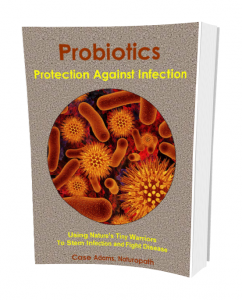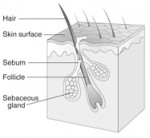Skin Probiotics Offer Best Defense Against MRSA Infections
Researchers have determined that healthy skin bacteria serve as defense mechanisms against infection, and can fight off even the sometimes deadly MRSA infection.
This of course explains why not everyone who comes into contact with the methicillin-resistant Staphylococcus aureus (MRSA) bacteria – or any other skin infective agent for that matter – becomes infected.
In this article
MRSA tested by scientists
Researchers from the University of California at San Diego tested a typical skin (probiotic) bacteria Propionibacterium acnes against MRSA in several settings. The researchers conducted laboratory studies by growing cultures of Propionibacterium acnes with and without their preferred food medium of glycerol, and tested these varying cultures against a species of MRSA bacteria known to be one of the most fatal – the USA300 species.
The research found those Propionibacterium acnes cultures with greater glycerol mediums significantly inhibited the growth of the MRSA bacteria. Those Propionibacterium acnes mediums with less glycerol had less resistance against the MRSA bacteria.
Propionibacterium acnes bacteria feed off of the glycerol produced by the body’s sebaceous glands.
One of the central mechanisms of Propionibacterium acnes’ ability to inhibit MRSA was through a biochemical called propionic acid. The researchers isolated the propionic acid from the skin probiotic and found that propionic acid in itself significantly inhibited the colonization of MRSA.
 What is propionic acid?
What is propionic acid?
Propionic acid is normally present on the skin of healthy persons.
The researchers then tested the ability of Propionibacterium acnes bacteria to prevent infection on the skin of mice. The Propionibacterium acnes bacteria cultures significantly inhibited MRSA infections – at even greater degrees than within the laboratory. The researchers also found that the Propionibacterium acnes bacteria tended to colonize into and around any wounds on the skin of the mice – thereby preventing MRSA infection into the wound.
The research discovered this ability to prevent MRSA infection on the skin and into wounds was due not only to the Propionibacterium acnes’ ability to inhibit MRSA biochemically: Propionibacterium acnes along with another skin probiotic, Staphylococcus epidermidis, stimulate the release of the body’s own immunity mechanisms through activating Toll-like receptors.
The human skin contains about ten times the number of probiotic bacteria than skin cells. Propionibacterium acnes bacteria make up approximately half of the total probiotic bacteria living on the skin.
Meanwhile antibiotics applied to the skin will produce a die-off of these important skin bacteria – which leaves the skin vulnerable to infection once the antibiotics wear off.
Compounding this risk, MRSA and other infective microorganisms are now resistant to many antibiotics. This means that antibiotic strategies might kill our skin probiotics while allowing MRSA and other antibiotic-resistant bacterial infections.
A natural antibiotic, honey, also fights MRSA.
Is it a coincidence that hospitals – places where the most antibiotics are applied or prescribed – have the greatest rate of infection of these antibiotic-resistant microorganisms? This is why infections of these microorganisms also have been dubbed “hospital acquired infections.”
REFERENCE:
Shu M, Wang Y, Yu J, Kuo S, Coda A, Jiang Y, Gallo RL, Huang CM. Fermentation of Propionibacterium acnes, a commensal bacterium in the human skin microbiome, as skin probiotics against methicillin-resistant Staphylococcus aureus. PLoS One. 2013;8(2):e55380.
















